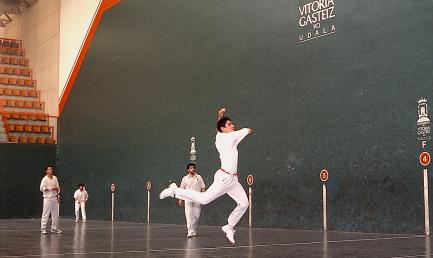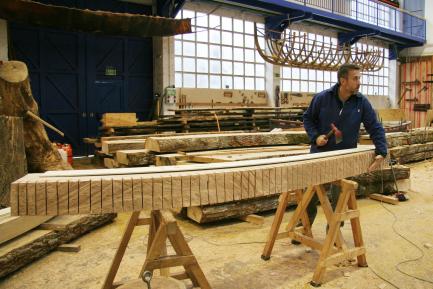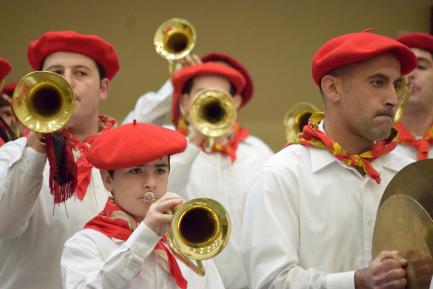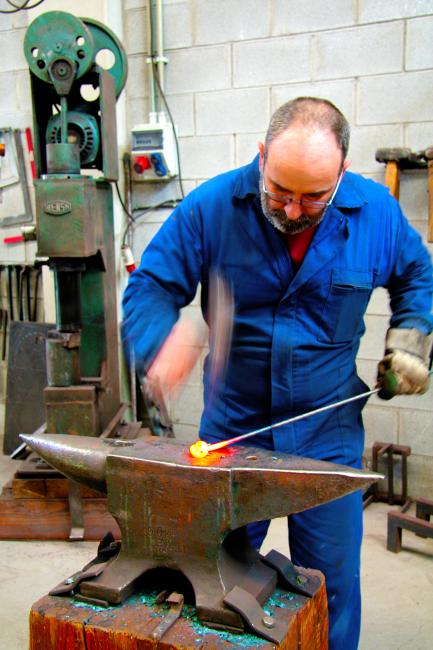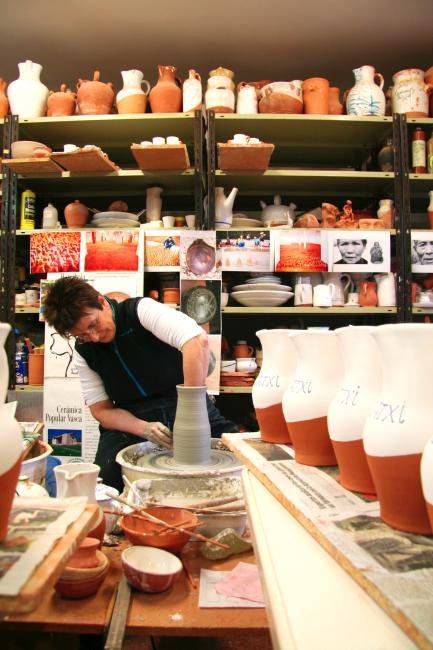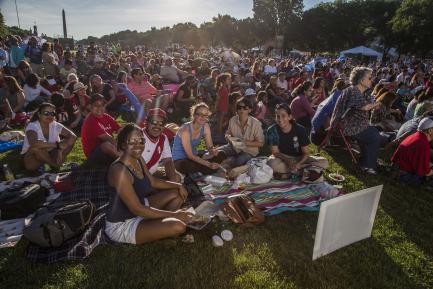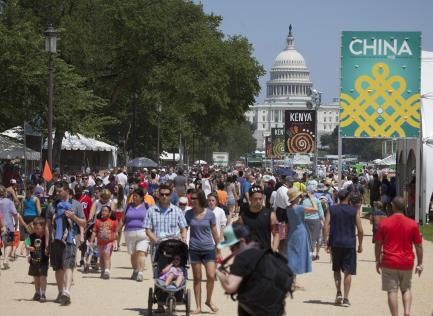Smithsonian Showcases Basque Culture at the 2016 Folklife Festival
This summer, visitors to the 2016 Smithsonian Folklife Festival will explore the unique language and distinct heritage of the Basque people. “Basque: Innovation by Culture” will feature musicians, cooks, artisans, craftsman and language experts who will explore themes of cultural sustainability, identity and migration. The Festival will host more than 200 participants from the Basque reqion (northern Spain and southwestern France) and Americans of Basque descent.
The Festival will be held Wednesday, June 29, through Monday, July 4, and Thursday, July 7, through Sunday, July 10, outdoors on the National Mall between Fourth and Seventh streets. Admission is free. Festival hours are from 11 a.m. to 5 p.m. each day, with special evening events beginning at 6:30 p.m. “Basque: Innovation by Culture” is co-sponsored by the Regional Basque Government, Navarre Government and the Regional Governments of Araba, Biscay and Gipuzkoa. The Festival is presented in partnership with the National Park Service.
The Basque are an example of a people have worked hard to keep ancient tradition, language and culture alive. The Basque constitute one of the oldest communities in Europe, and today nearly 1 million people worldwide speak Basque, or Euskara, formerly an endangered language that is now an example of successful language revitalization. Visitors to the Festival will be able to learn some Basque and see the importance of language in Basque identity firsthand.
“The ‘Basque: Innovation by Culture’ program will show what determined language revitalization efforts can accomplish,” said Mary S. Linn, program co-curator. “The Basques took a language that was disappearing and through community activism and public-policy advocacy, have brought Euskara into the schools and into everyday usage. This accomplishment is reflective of the Basques’ culture of innovation.”
Food is an important element of Basque life. In the Ostatua Kitchen tent, chefs from two Basque culinary schools (Escuela Superior de Hostelería de Artxanda and Escuela Superior de Hostelería de Gamarra) will showcase regional cooking and drinks with cooking demonstrations and workshops. In the baserria (the farmstead), cheesemakers will share the art of producing the Basque's unique cheese, and visitors will learn how people from a villager in Alava process salt from natural springs, using traditional methods to produce environmentally sustainable gourmet salt.
In the lantegia (the workshop), visitors will meet a master potter and teacher who is the only practioner of traditional Basque ceramic techniques. In the portua (the port), boat builders who use traditional methods will demonstrate their skills and build a 26-foot-long boat. “Basque: Innovation by Culture” will also highlight the rich cultural expressions of Basque Americans, featuring dancers, musicians, shepherds, poets and more, who create Basque identity, community and traditions in the United States.
A centerpiece of the Festival is the frontoia. In Basque communities around the world, a frontoi is both a handball court and functions as the center of community life. As the symbolic center and meeting place for the American people, the National Mall is a fitting location for a frontoi in Washington, D.C. The Folklife Festival Frontoia venue will allow visitors to watch and participate in pilota (handball) and bolo (bowling) lessons and games, sokatira (tug-of-war), lokotz biltzea (corn cob racing), demonstrations of other bertoko kirolak (local Basque sports), music and dance performances, and bertsolaritza (oral poetry contests).
Evening Concerts
The “Basque: Innovation by Culture” program will feature four evening concerts. All evening concerts are at 6:30 p.m. on the Ralph Rinzler Concert Stage.
Wednesday, June 29; Kepa Junkera and Sorginak
Latin Grammy award-winner Kepa Junkera is a master of the trikitixa, the Basque accordion, and he kicks off the Festival with the all-female group Sorginak, or witches.
Friday, July 1; NOKA and Biotzetik Basque Choir
NOKA is a trio of Basque American women based in Chino, Calif. They create traditional Basque music in a contemporary context, specializing in songs about culture, gender and identity. The Boise-based Biotzetik Basque Choir includes native Basques and first- and second-generation Basque Americans who perform both traditional folk songs and sacred music.
Thursday, July 7; Korrontzi and Gatibu
The eight-piece Korrontzi folk band is led by Agus Bandadiaran, who plays the trikitixa. Through workshops and performances, the band seeks to elevate Basque traditional music and dance, adding modern instruments and rhythms to make it accessible to a larger public. Gatibu comes from Gernika, creating a wide range of rock and pop music in the Basque language. Led by singer Alex Sardui, the four-piece band has toured around Basque country and Europe since forming in 2002.
Friday, July 8; Gatibu and Kalakan
Gatibu comes from Gernika, creating a wide range of rock and pop music in the Basque language. Led by singer Alex Sardui, the four-piece band has toured around Basque country and Europe since forming in 2002. Kalakan is a trio that reinterprets traditional music using Basque txalaparta (xylophone), pandereta (tambourine), atabal (kettledrum) and more.
Sponsors
“Basque: Innovation by Culture” is produced by the Smithsonian’s Center for Folklife and Cultural Heritage in partnership with Basque Government, Navarre Government and the provincial governments of Araba, Biscay and Gipuzkoa.
About the Festival
The 2016 Smithsonian Folklife Festival will feature two programs. In addition to “Basque: Innovation by Culture,” the second program is “Sounds of California.” The Smithsonian Folklife Festival, inaugurated in 1967, honors contemporary living cultural traditions and celebrates those who practice and sustain them. Produced annually by the Smithsonian’s Center for Folklife and Cultural Heritage, the Festival has featured participants from all 50 states and more than 100 countries. Follow the Festival on Facebook, Twitter, Instagram and YouTube.
# # #
SI-262B-2016


